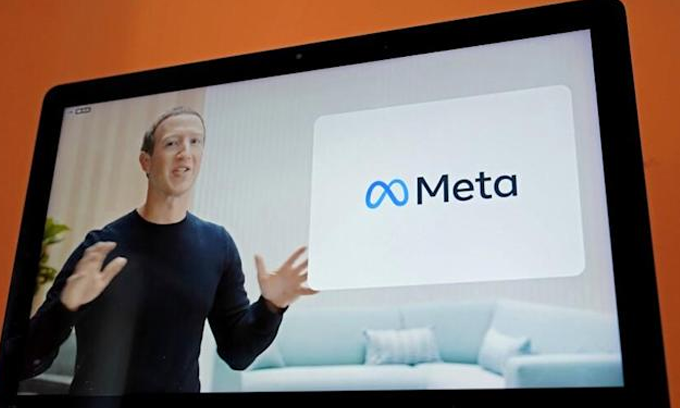(UTV | CALIFORNIA) – Facebook is changing its name to Meta, reflecting the company’s push to build an avatar-filled virtual world known as the metaverse as it battles a deepening public relations crisis and growing regulatory scrutiny.
Speaking at Facebook Connect, the company’s annual virtual and augmented reality conference, on Thursday, Mark Zuckerberg, chief executive, said Facebook was “an iconic social media brand but increasingly, it just doesn’t encompass everything that we do”.
He added that “from now on, we’re going to be metaverse first, not Facebook first”, relegating the social media network he founded in 2004 to secondary status.
While the company is changing its name to Meta, the existing individual platforms and brands — Facebook, WhatsApp, Messenger, Instagram and Oculus — will not change, Zuckerberg said.
Facebook has increased investment in augmented and virtual reality as it competes with Silicon Valley rivals such as Apple and Google to build the next-generation computing platform. In July, Zuckerberg first outlined his futuristic vision to build a metaverse, which can be accessed through different devices, where users can shop, game and socialise in a shared virtual space.
In a blog post, the company said it would start trading under the ticker MVRS from December 1, though its corporate structure and the way it shares data would not change. From the fourth quarter it would break out its results for Reality Labs, its AR and VR arm, from the rest of the social media business, which it calls its “Family of Apps”.
Facebook is facing a deluge of scrutiny after former employee Frances Haugen accused it of deepening polarisation and relentlessly placing profits over the safety of its users.
News outlets, including the Financial Times, obtained redacted versions of thousands of documents that she provided to US regulators and Congress, which provide a glimpse into the company’s inner workings.
Facebook said in a regulatory filing on Tuesday that the company “became subject to government investigations and requests relating to a former employee’s allegations and release of internal company documents concerning, among other things, our algorithms, advertising and user metrics, and content enforcement practices, as well as misinformation and other undesirable activity on our platform, and user wellbeing”.
The Wall Street Journal on Wednesday reported the Federal Trade Commission had begun scrutinising internal Facebook research, in particular around whether its platforms exacerbated teen mental health problems, to assess whether the company had violated a $5bn settlement agreed with the agency in 2019 over privacy concerns.
Facebook’s shares have fallen more than 16 per cent since the Journal first started reporting on the documents in mid-September.
“Obviously the timing of [the rebrand], given that Facebook is being dragged through the mud right now for a lot of challenging business practices, is questionable because it looks like you’re running from your chequered past,” said Marisa Mulvihill, a brand strategy expert at global management consultancy Prophet.
But she added that such a move is generally a “successful strategy” for a company looking to show it is expanding its vision beyond one of its lines of business. In 2015, Google rebranded under the parent company name Alphabet to highlight its transformation beyond search and advertising into new markets such as driverless cars and healthcare.
Democratic senator Richard Blumenthal, a frequent critic of the company, described the name change as “cosmetics”, adding: “Facebook needs to come clean & change its game. Real disclosure, accountability, protection of kids, & privacy — for starters. Meta is meaningless without measurable action.”
During the presentation on Thursday, Zuckerberg said the metaverse would be the “successor to the mobile internet”. Facebook was hoping to attract 1bn more users and “hundreds of billions of dollars of digital commerce a day” in the next decade, he said, adding that the process would take many years.
He also announced a number of new metaverse, AR and VR features and projects, and sought to reassure users that privacy and safety would be built into these. Among them, the company is launching “Horizon Home”, an application designed to allow users to socialise as avatars in a shared, imaginary home while wearing its Oculus virtual reality headsets.
Facebook also said it aimed to develop fully lifelike avatars that mirror and track users, moving beyond the cartoon-like ones that it currently offers.
Zuckerberg bemoaned “the lack of choice and high fees [that] are stifling innovation” for developers using existing operating systems, in an apparent shot against Apple and Google, whose mobile app stores charge 15-30 per cent commissions on digital goods.
Facebook plans to charge “low fees in as many cases as possible” to developers and creators using its metaverse-related services, he said.
Zuckerberg also indicated that cryptocurrencies and non-fungible tokens — digital tokens that represent artworks or other collectibles — would be part of the metaverse vision.



